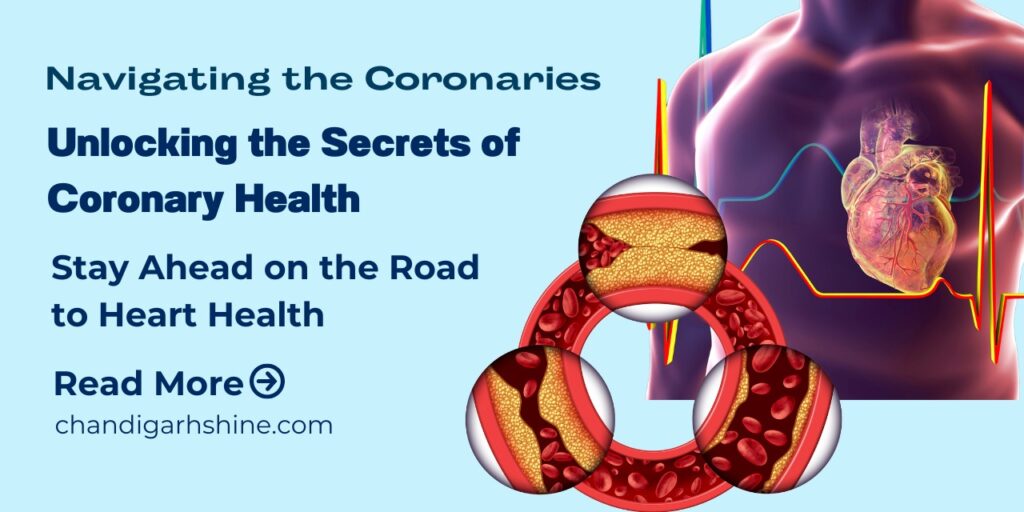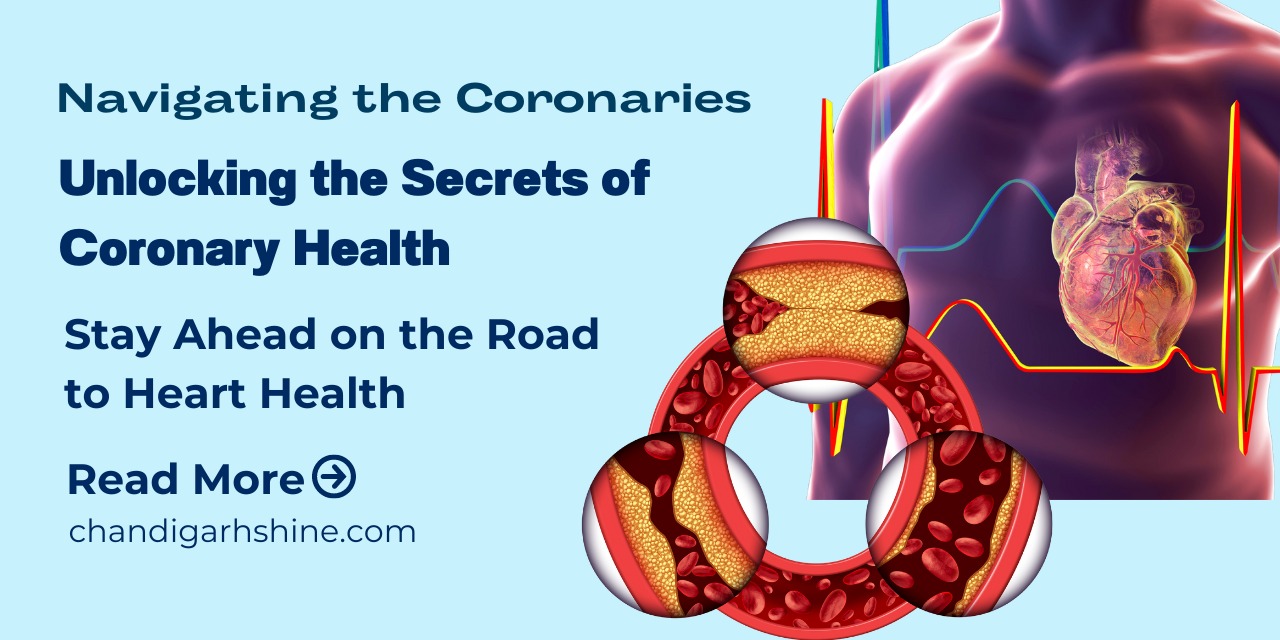
Introduction:
The human heart is a marvel of engineering, tirelessly pumping blood throughout the body, ensuring the delivery of essential nutrients and oxygen to every cell. However, this vital organ is susceptible to various conditions, with coronary artery disease (CAD) being one of the most prevalent and potentially life-threatening. Understanding how to navigate the complexities of coronary health is crucial for maintaining a strong and resilient heart.
What are the Coronaries?
Before delving into the intricacies of coronary health, it’s essential to grasp the fundamentals of the coronary arteries. These arteries are responsible for supplying oxygen-rich blood to the heart muscle itself, ensuring its continuous function. The two main coronary arteries, the left coronary artery (LCA) and the right coronary artery (RCA), branch out into smaller vessels that permeate the heart muscle, forming an extensive network that sustains the cardiac tissue.
The Challenge of Coronary Artery Disease (CAD):
Coronary artery disease occurs when the coronary arteries become narrowed or blocked due to the accumulation of plaque—a combination of cholesterol, fat, and other substances. This buildup restricts blood flow to the heart muscle, leading to various symptoms such as chest pain (angina), shortness of breath, and in severe cases, heart attacks. CAD is often attributed to lifestyle factors such as poor diet, lack of exercise, smoking, and underlying medical conditions like hypertension and diabetes.
Navigating the Coronaries:
Fortunately, there are several strategies individuals can adopt to promote heart health and navigate the challenges posed by coronary artery disease.
Embrace a Heart-Healthy Lifestyle:
A cornerstone of coronary health is adopting habits that support cardiovascular well-being. This includes maintaining a balanced diet rich in fruits, vegetables, whole grains, and lean proteins while limiting intake of saturated fats, trans fats, and cholesterol. Regular physical activity is also essential, as it helps lower blood pressure, control weight, and improve overall cardiovascular function.
Know Your Risk Factors:
Understanding your risk factors for coronary artery disease [Source : https://en.wikipedia.org/ ] is crucial for proactive prevention and management. Factors such as age, family history, high blood pressure, high cholesterol, diabetes, smoking, and obesity can significantly increase the likelihood of developing CAD. Regular check-ups with a healthcare provider can help assess these risk factors and tailor interventions accordingly.
Monitor Blood Pressure and Cholesterol Levels:
Hypertension (high blood pressure) and dyslipidemia (abnormal cholesterol levels) are major contributors to coronary artery disease. Monitoring blood pressure and cholesterol levels through regular screenings is essential for early detection and management. Lifestyle modifications, medications, and other interventions may be recommended to control these risk factors and reduce the risk of CAD.
Seek Prompt Medical Attention:
Prompt recognition and treatment of symptoms suggestive of coronary artery disease are crucial for preventing complications such as heart attacks and heart failure. Chest pain, particularly if accompanied by other symptoms such as shortness of breath, nausea, or sweating, should never be ignored. Seeking immediate medical attention can significantly improve outcomes and prevent further damage to the heart.
Explore Treatment Options:
For individuals diagnosed with coronary artery disease, various treatment options are available depending on the severity and extent of the condition. Lifestyle modifications, medications (such as statins, antiplatelet agents, and blood thinners), and invasive procedures (such as angioplasty and coronary artery bypass grafting) may be recommended to manage symptoms, improve blood flow, and reduce the risk of complications.
Conclusion:
Navigating the coronaries towards optimal heart health requires a multifaceted approach encompassing lifestyle modifications, risk factor management, regular monitoring, and timely intervention. By adopting a proactive mindset and working closely with healthcare providers, individuals can mitigate the risk of coronary artery disease and enjoy a life filled with vitality and well-being. Remember, the journey to heart health begins with small, consistent steps towards a healthier lifestyle.
For expert guidance and in-depth insights into maintaining a healthy heart and preventing Atherosclerosis, consider consulting with a renowned cardiologist and heart specialist:
Dr. Puneet K. Verma With a distinguished background, including MD, DNB, DM, FCSI, FSCAI, FACC, and FESC qualifications, Dr. Verma is a trusted authority in the field of cardiology. You can find more about his expertise and services by visiting his official profile at LinkedIn or official website:. Dr. Verma’s extensive knowledge and experience make him a valuable resource in your journey toward optimal heart health,whether you’re in need of a cardiologist or an interventional cardiologist in Mohali.
If you found this information valuable, please share it to help others mitigate the risks associated with Coronaries. It’s time we prioritise heart health and well-being. 💓

